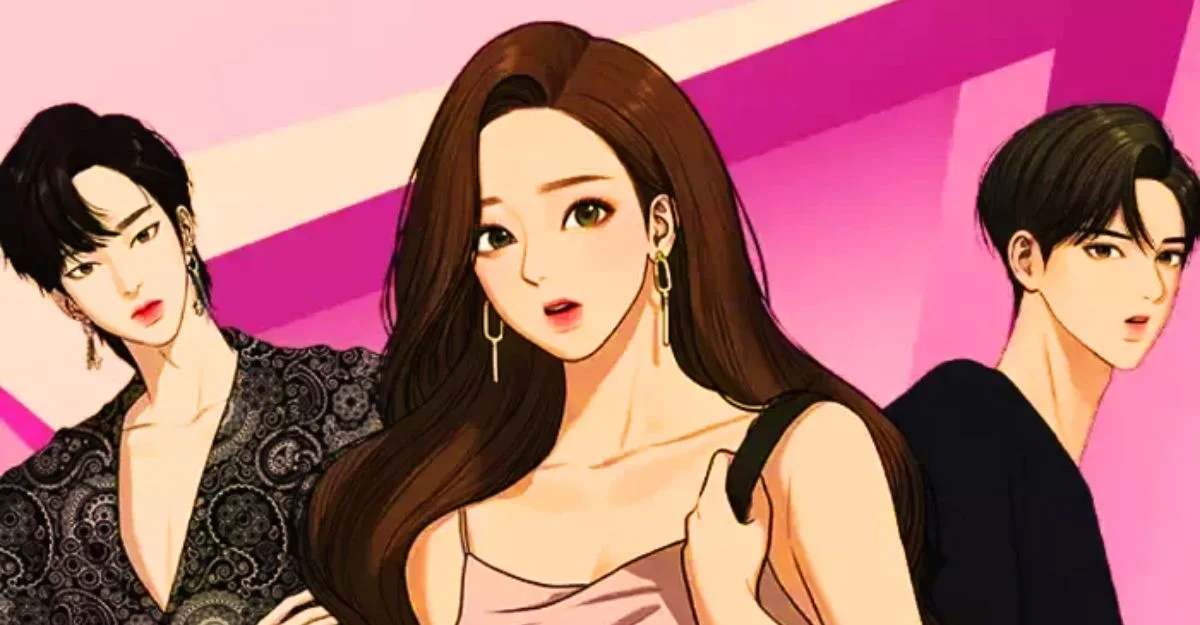Manhwa, the South Korean partner to Japanese manga and Chinese manhua, has acquired gigantic prevalence all around the world as of late. Frequently adapted in dynamic tones and novel narrating designs, manhwa offers a reviving interpretation of comic imaginativeness that recognizes it from its worldwide partners. This article investigates the starting points, extraordinary qualities, famous types, computerized transformation, and worldwide impact of komik manhwa.
Origins and History of Manhwa
The expression “manhwa” began during the mid twentieth hundred years, impacted by Japanese manga during Japan’s control of Korea. Notwithstanding, manhwa developed into an unmistakable fine art that mirrors Korea’s remarkable culture and cultural changes. At first, these comics were imprinted in papers and magazines, frequently as humorous or political kid’s shows. Post-freedom, the medium extended to incorporate kinds like sentiment, show, and dream.
The 1980s and 1990s denoted the brilliant period of printed manhwa, with various actual distributions becoming family staples. Nonetheless, the turn of the 21st century saw a decrease in printed manhwa because of monetary emergencies and the ascent of computerized stages, which ultimately brought forth the webtoon design that upset the business.
Unique Characteristics of Manhwa
Manhwa stands out for several reasons, which include its:
1. Art Style
Manhwa frequently includes nitty gritty and expressive person plans, with an emphasis on present day style. Dissimilar to customary manga, which is regularly high contrast, numerous manhwa are distributed in full tone, making them outwardly striking.
2. Vertical Scrolling Format
With the coming of computerized stages, manhwa embraced a vertical looking over design improved for cell phones and tablets. This organization permits perusers to consume content consistently without expecting to flip pages, offering a powerful understanding encounter.
3. Themes and Storytelling
Manhwa often tackles contemporary and relatable themes, including societal issues, mental health, and personal growth, alongside fantasy and romance. The storytelling tends to be more fast-paced compared to traditional manga, appealing to modern readers with shorter attention spans.
Popular Genres in Manhwa
Manhwa covers a broad spectrum of genres, catering to diverse audiences. Some of the most popular genres include:
1. Romance
Romantic manhwa such as “True Beauty” and “What’s Wrong with Secretary Kim?” delve into themes of love, relationships, and personal growth, often set against visually stunning backdrops.
2. Fantasy and Action
Titles like “Solo Leveling” and “Tower of God” showcase imaginative worlds, intricate plots, and intense action sequences, making them a hit among younger audiences and fantasy enthusiasts.
3. Slice of Life
Slice-of-life manhwa explores everyday experiences and emotional depth. Stories such as “Itaewon Class” capture the struggles and triumphs of ordinary people in realistic settings.
4. Historical and Supernatural
Manhwa like “The Scholar Who Walks the Night” and “Who Made Me a Princess” combine historical settings with supernatural elements, offering readers a blend of intrigue and escapism.
The Rise of Webtoons
The expression “webtoon” alludes to advanced manhwa distributed on the web. Stages like LINE Webtoon, KakaoPage, and Lezhin Comics play played significant parts in promoting webtoons both locally and globally. Webtoons are open, frequently allowed to peruse, and refreshed routinely, making them interesting to a wide crowd.
1. Advantages of Webtoons
The digital format eliminates the need for physical distribution, allowing creators to reach a global audience. Features like interactive elements, music, and animations further enhance the reading experience.
2. Global Expansion
With translations available in multiple languages, webtoons have garnered a massive international following. Titles such as “Lore Olympus” and “The Remarried Empress” have transcended cultural barriers, proving that storytelling is universal.
The Global Influence of Manhwa
The global success of manhwa can be attributed to several factors:
1. Adaptations into Dramas and Films
Many popular manhwa have been adapted into K-dramas and movies, such as “Itaewon Class” and “Cheese in the Trap”. These adaptations introduce manhwa to audiences who may not be regular comic readers.
2. Crossover with Other Media
Manhwa-inspired video games, merchandise, and fan art communities contribute to its expanding cultural footprint. Platforms like TikTok and Instagram also amplify its reach through fan discussions and memes.
3. Influence on Art and Storytelling
Manhwa’s innovative use of colors, panel layouts, and storytelling techniques has influenced comic creators worldwide. The vertical scrolling format, in particular, has inspired similar adaptations in Western comics.
Challenges and Future Prospects
Despite its global success, the Komik manhwa industry faces challenges:
1. Piracy
Illegal distribution of Komik Manhwa impacts creators’ earnings and the industry’s sustainability. Efforts to combat piracy include strict copyright enforcement and educating readers about supporting official platforms.
2. Creator Burnout
The demand for frequent updates can lead to intense pressure on artists and writers. Addressing this issue requires better work environments and flexible schedules for creators.
3. Market Saturation
With the rising number of webtoons, hanging out in a jam-packed market becomes testing. Development in narrating and craftsmanship will be urgent for keeping up with peruser interest.
The future of Komik Manhwa looks encouraging, with proceeded with progressions in innovation and narrating prone to push the medium higher than ever. Developing business sectors, coordinated efforts, and further joining with interactive media stages will without a doubt shape its direction.
Conclusion
Komik manhwa has developed from a specialty social item to a worldwide peculiarity. Its particular workmanship style, drawing in stories, and advanced development have dazzled perusers around the world, solidifying its spot in the worldwide comic industry. As it keeps on developing, Komik Manhwa holds the possibility to reclassify the limits of narrating, making it an awe-inspiring phenomenon in the realm of visual stories. Komik Manhwa

